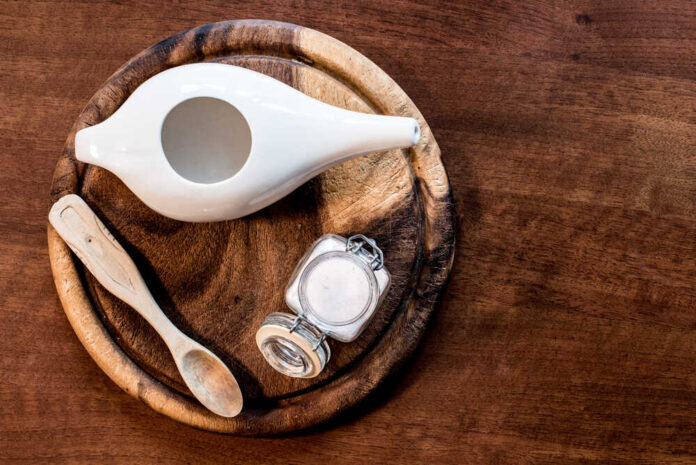
In today’s health-conscious world, using home medical devices for self-care has become increasingly common.
Nasal irrigation devices, like neti pots, are popular for providing relief from sinus congestion and allergies.
However, a recent study published in Emerging Infectious Diseases suggests that many people may be unknowingly putting their health at risk by using tap water in neti pots and other home medical devices.
The Risks of Tap Water
Tap water in the United States is treated to meet safe drinking standards, but low levels of microorganisms can still be present.
While these microorganisms are generally harmless for drinking and cooking, they can pose a risk when used in home medical devices that aerosolize water or irrigate the eyes and nose.
The study found that many respondents were unaware that tap water isn’t sterile, and a large proportion of them believed that tap water could be safely used for nasal rinsing devices, contact lens rinsing, and filling respiratory devices.
These incorrect assumptions can lead to increased exposure to waterborne pathogens and a higher risk of infections.
High-Risk Groups and the Importance of Sterile Water
Certain groups of people are at a higher risk for acquiring opportunistic infections from waterborne pathogens.
The elderly, infants and young children, and individuals with weakened immune systems or other concurrent conditions are more susceptible to these infections. For these individuals, using sterile water in home medical devices is crucial for reducing the risk of infections.
Sterile water is free from organic microbes but may still contain inorganic materials, such as minerals. Distilled water, on the other hand, is devoid of both organic and inorganic materials, making it a safer choice for use in home medical devices.
The Role of Neti Pots in the Issue
Neti pots are small teapot-like containers designed to rinse out your nasal passages and relieve sinus congestion and allergies.
However, using tap water in neti pots can introduce potentially harmful pathogens to the sensitive nasal passages, increasing the risk of infection.
The recent study found that a significant number of participants were not aware that tap water should not be used in neti pots or other similar devices.
Safe Water Practices for Neti Pots and Home Medical Devices
To reduce the risk of infection from using tap water in neti pots and other home medical devices:
- Use distilled, sterile, or previously boiled and cooled water for nasal irrigation, respiratory devices, and contact lens rinsing.
- Clean and disinfect neti pots and other home medical devices regularly, according to the manufacturer’s instructions.
- Follow the recommendations of healthcare providers and manufacturers regarding the use and maintenance of home medical devices.
- Stay informed about water quality in your area and potential risks associated with using tap water for medical purposes.
By using distilled, sterile, or previously boiled and cooled water, cleaning and disinfecting your devices regularly, and following healthcare providers’ and manufacturers’ recommendations, you can minimize the risk of infection and ensure a safer, healthier use of home medical devices.






















